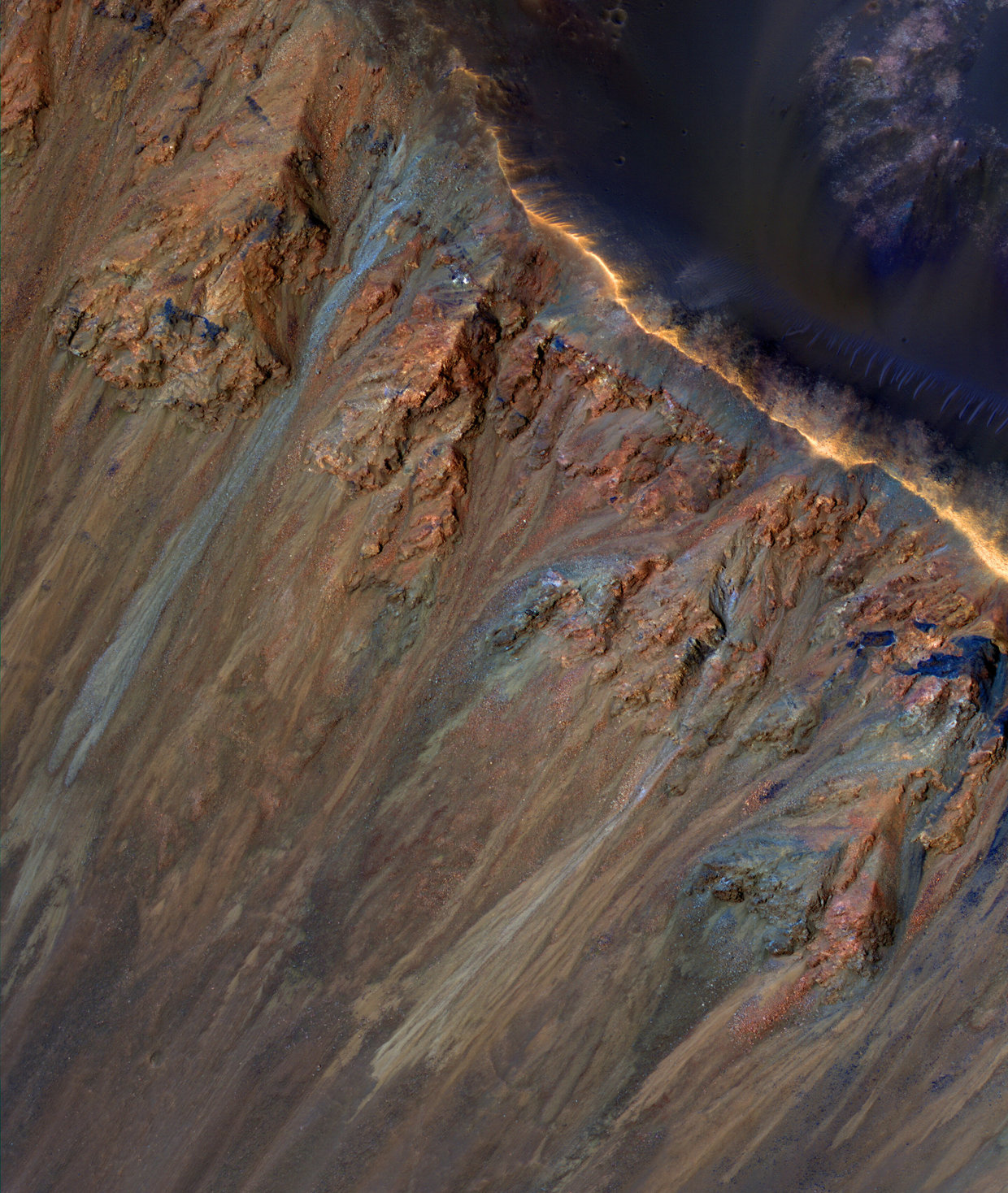A team of researchers associated with NASA’s search for extraterrestrial intelligence has developed a new theory about the shifting sands visible across Mars, with possible ramifications for future human colonization.
Led by SETI Institute Senior Research Scientist Janice Bishop, the scientists’ new theory suggests a thin layer of water ice exists just below the surface of much of Mars’ barren landscape.
This ice warms under sunlight and loosens surface debris, making it easy pickings for the Red Planet’s many storms that blow debris loose.
Underground interactions between water ice, chlorine salts and sulfates then create vast sinkholes beneath this detritus, adding yet more challenges to human habitation of the already challenging colony contender by turning the landscape into vast, dusty sinkhole ‘swamps.’

High Resolution Imaging Science Experiment data from the Mars Reconnaissance Orbiter confirmed that the RSL occur on sun-facing slopes.
The team then conducted lab experiments with Martian soil analogs taken from some of the Earth’s least-hospitable zones, such as the Atacama Desert and Antarctica, to see what impact chlorine salts and sulfates would have on their integrity, even at the low temperatures found on the surface of Mars.
PRESS RELEASE: https://t.co/LlaHVOpRIh
— The SETI Institute (@SETIInstitute) February 3, 2021
A team of researchers led by SETI Institute Senior Research Scientist Janice Bishop, a member of the SETI Institute NASA Astrobiology Institute (NAI) team, has come up with a theory about what is causing landslides on the surface of Mars. pic.twitter.com/f9AL8oHUZX
Sure enough, the soil turned to slushy ice near -50 degrees Celsius, giving way to more free floes of ice between -40 and -20 degrees Celsius.
The research builds on earlier findings about the widespread presence of water ice on the Martian surface, but also indicates that the planet is still rather active and evolving, yielding new challenges and new opportunities for future human colonists and astrobiologists back here on Earth.
Think your friends would be interested? Share this story!
source https://www.rt.com/news/514578-scientists-theory-mars-mudslides/?utm_source=rss&utm_medium=rss&utm_campaign=RSS




0 Comments